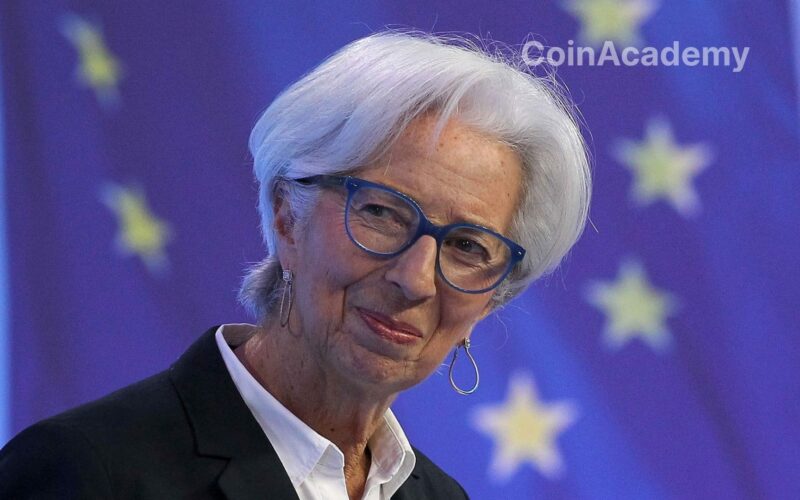A New Report Calls for Strict Regulation or Even a Ban on Bitcoin
A recent report from the European Central Bank (ECB) states that long-time Bitcoin holders are taking advantage of new buyers by selling at a profit. The report calls for strict regulation or even a complete ban on the decentralized cryptocurrency.
According to the report, these early buyers, who acquired BTC at lower prices, are now selling at higher prices to newer investors, creating a form of exploitation.
Bitcoin and the Dynamics of Financial Markets
The report highlights that those who bought bitcoins earlier or during periods when the market was at its lowest are profiting by selling at higher prices to new entrants. They present this mechanism as exploitation of new buyers, although it is an inherent logic in all financial markets: buy low and sell high to make a profit.
Based on this analysis, the report concludes that strict price controls should be put in place to prevent this exploitation, even suggesting that the cryptocurrency could be banned to prevent an unequal distribution of wealth and potential civil unrest. According to the report, current non-holders would have an interest in supporting legislation against Bitcoin to ‘prevent the rise in Bitcoin prices or see Bitcoin disappear completely’.
Controversial Use and Contradictory Arguments
The authors of the report also claim that Bitcoin is rarely used as a method of payment, based on the false assertion that it is the preferred means for criminal transactions. However, a report as recent as May 2024 from the US Department of the Treasury concluded that fiat currency remains the primary tool used for illicit transactions.
An Incomplete Analysis of Bitcoin’s Success
The report fails to mention why the price of a limited supply asset like Bitcoin has risen so much since its creation in 2009. It also fails to acknowledge that Bitcoin’s pseudonymous creator, Satoshi Nakamoto, initially designed this decentralized digital currency as both an alternative payment method and a store of value against the rapid depreciation of fiat currencies.
Monetary Inflation: The Great Absence in the Debate
An essential point seems to have been ignored by the report’s authors: the effects of rampant monetary inflation imposed by governments and central banks. Contradictions abound in the ECB’s arguments, claiming that Bitcoin has no real value while simultaneously suggesting that it could reach a high enough level to destabilize society.
The report even imagines a Bitcoin price exceeding $10 million, despite previously declaring its market cap already reached its ceiling, comparing it with the market cap of silver and gold.
This analysis overlooks the impact of inflationary policies weighing on global economies.
In the UK, for example, public debt for the fiscal year 2023-2024 reached approximately 98% of the country’s GDP, according to Statista, an unprecedented high since the 1960s. In the US, monetary creation through stimulus policies has led to a 41% increase in the M2 money supply since 2020, exacerbating a national debt of over $35 trillion and causing a corresponding loss of consumer purchasing power.
Bitcoin’s Initial Context and Future Regulation
The issue of monetary inflation is not new and was even anticipated by Satoshi Nakamoto. When creating Bitcoin’s first block—known as the ‘Genesis Block’—on January 3, 2009, Nakamoto inserted a reference to a headline from The London Times of the same day announcing ‘The Chancellor on brink of second bailout for banks.’ This message already highlighted the fragility of the banking system and the financial independence that Bitcoin could offer as a store of value against the manipulation of traditional currencies.
With such polarizing arguments, the regulation of Bitcoin by major financial institutions remains a hot topic. While some view this cryptocurrency as a potential threat to traditional monetary systems, others see it as a means to escape inflation and the excesses of government monetary policies. The ECB’s position, calling for extreme measures such as price controls or a ban on Bitcoin, reflects the growing tensions between the traditional financial system and the emergence of decentralized alternatives, creating an impressive amount of bad faith.
In a context where public debt continues to rise and fiat currencies lose their purchasing power, Bitcoin may still be seen as a solution for many investors, despite regulatory warnings.




